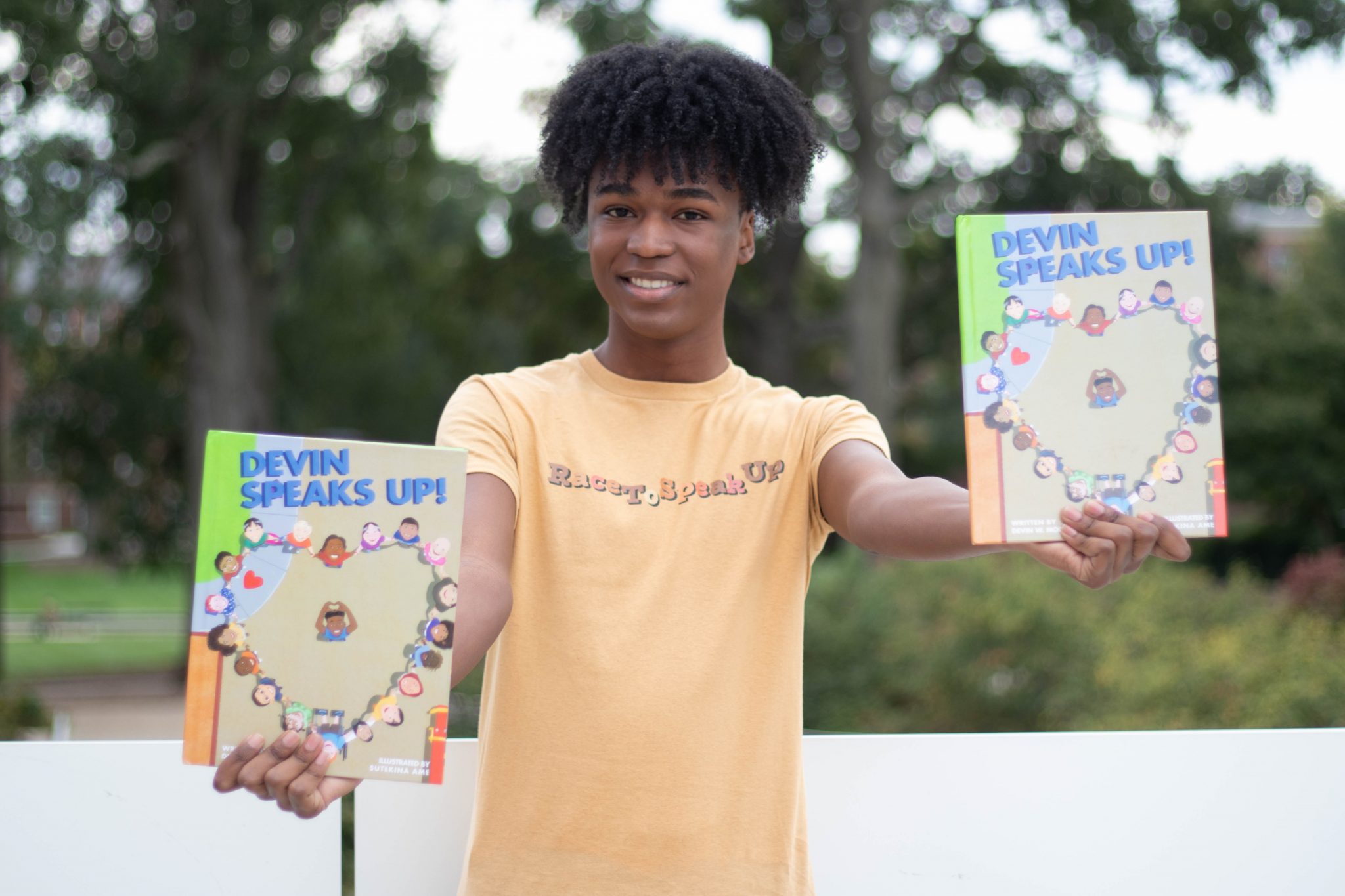At 19 years old, University of Maryland sophomore psychology student Devin Moore is a published author, non-profit founder and anti-bullying activist.
Moore’s work revolves around creating safe spaces for students of all identities to speak up in their communities. Moore emphasizes the importance of providing individuals with resources they can take back into their communities to create impact.
They aim to create those resources through their eight-season “Race To Speak Up” podcast, #BehindTheScreen anti-cyberbullying curriculum and published children’s book Devin Speaks Up! that tells their own story about dealing with bullying.
Moore said their book, which was published in 2022, serves as an educational resource for students and parents on anti-bullying.
“I realized I wanted to give students a tool that they can directly bring back into their own environment,” Moore said.
In 2018, Moore founded Race to Speak Up, an anti-bullying organization, with a mission to empower students to speak up for themselves and others experiencing bullying.
[UMD SGA offers positive outreach, gender-affirming resources to LGBTQ+ students]
The non-profit was born out of Moore’s own experiences with bullying as a teen. At 14 years old, Moore faced severe physical and cyberbullying that was often racial in nature.
“I knew what it was like to go through the pain and trauma caused by bullying,” Moore said.
Through Race To Speak Up, Moore visits schools, libraries and other community organizations to provide anti-bullying programming. Moore’s workshops aim to inspire students to be “upstanders” who support targets of bullying and provide students with tools to prevent bullying.
Educating students at a young age could lessen the likelihood of bullying occurring, Moore said.
Pulling from their personal experiences has served as a gateway for Moore to connect with students, according to Kimberly Balducci, a guidance counselor at Park Avenue Memorial Elementary School where Moore gave an assembly and book reading in January.
“[They were] were able to really relate to the students with [their] own personal experience and they all found something different that they were able to relate back to [them],” Balducci said.
At this university, Moore has focused on creating a more inclusive environment on campus.
[‘A community in crisis’: UMD graduate students reflect on mental health challenges]
As one of 15 students selected to be a Do Good Accelerator Fellow through the public policy school, Moore facilitated diversity dialogues on campus, giving students of different backgrounds a space to discuss their identity-based experiences and build community with one another.
Moore is also the community organizing student intern for Black Student Involvement & Advocacy in the Office of Multicultural Involvement & Community Advocacy, where they assist the development of educational initiatives and programming with a focus on Black student life.
“They’re very motivated to be involved in campus,” said Micaylah Jones, graduate coordinator for Black Student Involvement & Advocacy. “They really have a passion and heart for working with the Black community and especially seeing conditions for the Black community improve on campus.”
Moore hopes to amplify students’ voices — a goal that connects all their community organizing and activism. Hearing students tell their stories lets them know their work is having an impact, Moore said.
“Those are the things that bring a warmth to my heart because it lets me know that what I’m doing is in fact helping others,” Moore said. “Your voice is a beautiful voice. It’s one that needs to be supported.”



